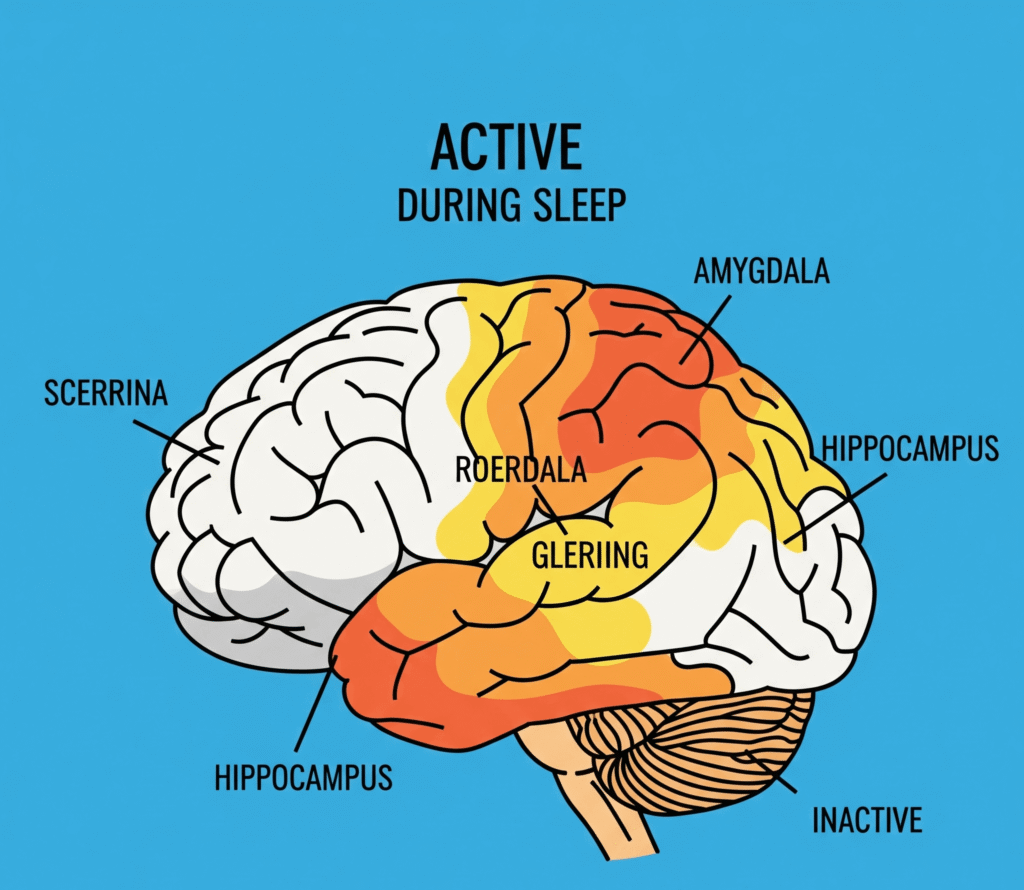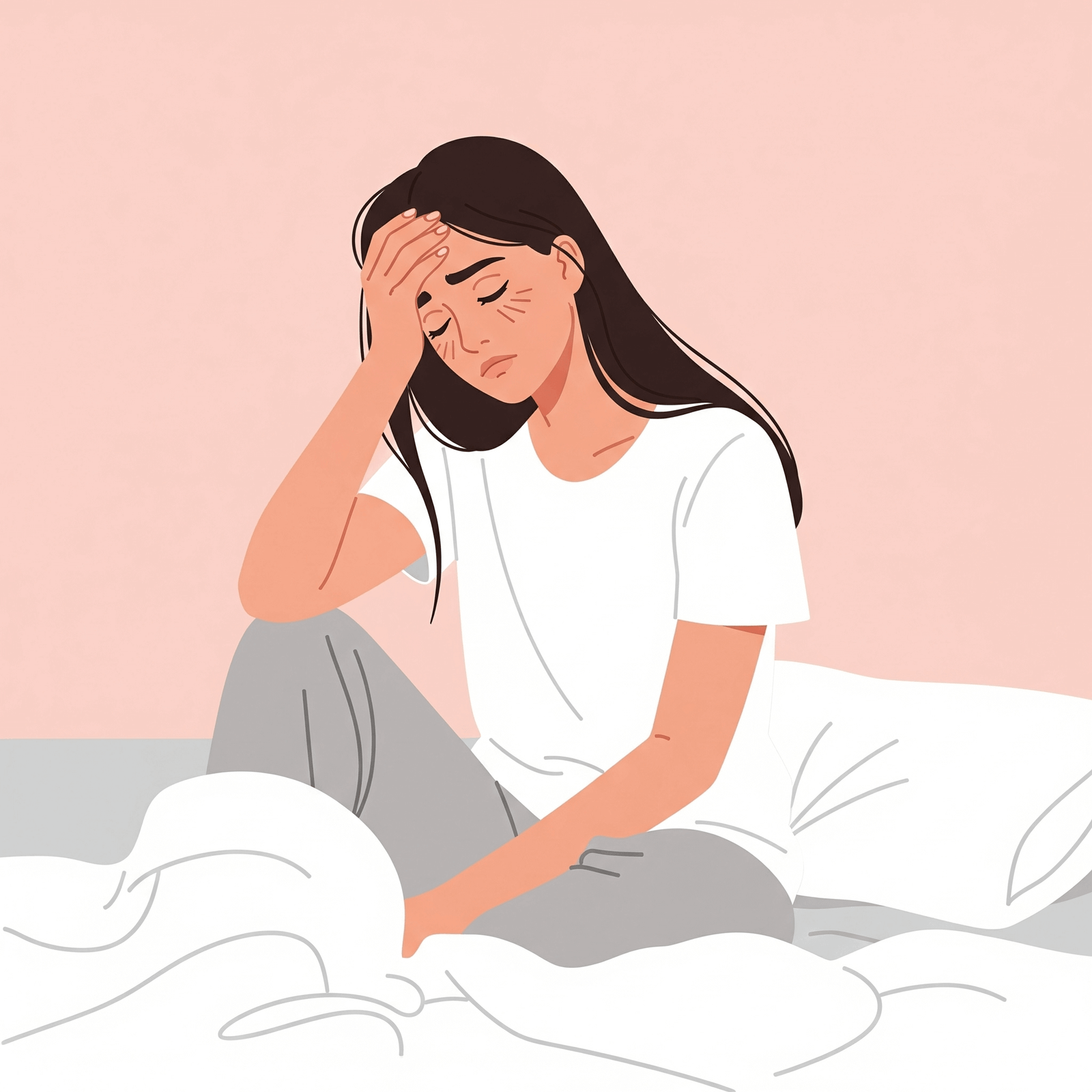Introduction: The Two-Way Street Between Sleep and Mental Health
Have you ever noticed how a bad night’s sleep can leave you feeling anxious, irritable, or even emotionally numb the next day? It’s no coincidence. Decades of research confirm that sleep and mental health are deeply intertwined — and the relationship goes both ways. Quality sleep helps regulate emotions, build resilience, and maintain brain health. On the flip side, chronic sleep deprivation can worsen symptoms of anxiety, depression, and even trigger serious psychiatric conditions.
In this article, we’ll explore the science behind this connection, highlight key mental health disorders linked to sleep problems, and offer evidence-based strategies to improve your sleep — and your mind.
1. What Happens to Your Brain When You Sleep?
Sleep is not just a passive rest state; it’s an active period of restoration and regulation for the brain. During deep sleep stages (especially non-REM stages 3 and 4), your brain:
Flushes out metabolic waste (including neurotoxic proteins like beta-amyloid)
Regulates cortisol and other stress hormones
Processes emotional memories
Stabilizes neurotransmitter systems, like serotonin and dopamine
When this process is disrupted — due to poor sleep quality, inconsistent sleep schedules, or insomnia — your brain remains in a hyper-alert state. That’s when mental health begins to suffer.

2. The Mental Health Conditions Most Tied to Sleep
Let’s look at some of the most well-documented links between sleep and psychological disorders:
➤ Depression
People with insomnia are 10 times more likely to develop major depressive disorder. Sleep disruption often precedes the onset of depression, and fragmented REM sleep can increase the severity of depressive episodes.
➤ Anxiety Disorders
Poor sleep triggers the amygdala (the brain’s fear center), making everyday stressors feel overwhelming. Studies show that even one night of sleep loss can heighten anxiety levels the following day.
➤ Bipolar Disorder
Sleep changes often signal manic or depressive episodes. Stabilizing circadian rhythms is now a core part of bipolar treatment plans.
➤ PTSD
Nightmares, night sweats, and sleep avoidance are hallmark symptoms of PTSD. The inability to enter deep sleep impairs the brain’s ability to process trauma and recover.
3. The Biological Pathways: Why Sleep Impacts Mental Health
Understanding the “why” behind this relationship helps reveal actionable steps. Here are a few key mechanisms:
HPA Axis Dysregulation
Chronic sleep loss over-activates the hypothalamic-pituitary-adrenal (HPA) axis, elevating stress hormone levels and contributing to mood instability.Neuroplasticity Impairment
Poor sleep weakens the brain’s ability to form new neural connections, which is essential for emotional learning and therapy effectiveness.Glymphatic System Disruption
This system cleans the brain during sleep. Without it, toxins accumulate, increasing risk for cognitive decline and psychiatric illness.
4. Improving Sleep to Support Mental Wellbeing
Thankfully, sleep can be improved — and in doing so, you support your mental health. Here are some evidence-backed strategies:
✅ Stick to a Consistent Sleep Schedule
Go to bed and wake up at the same time daily — even on weekends — to reinforce your body’s internal clock.
✅ Reduce Stimulants and Screens Before Bed
Avoid caffeine after 2 p.m. and limit blue light exposure in the evening. Blue light delays melatonin release, making it harder to fall asleep.
✅ Create a Calm, Cool Sleep Environment
Keep your room dark, quiet, and around 18–20°C. Use blackout curtains, white noise machines, or eye masks if needed.
✅ Limit Rumination and Late-Night Worry
Practice journaling, guided meditation, or slow breathing before bed to quiet your mind.
✅ Consider Cognitive Behavioral Therapy for Insomnia (CBT-I)
This gold-standard therapy helps reframe negative sleep thoughts and reset unhelpful habits.
Conclusion: Healing the Mind Starts with Sleep
Mental health isn’t just about your thoughts — it’s also about your rest. By prioritizing sleep, you’re investing in emotional stability, clearer thinking, and a greater ability to cope with life’s challenges.
The connection between sleep and mental health is not just strong — it’s foundational. Taking care of your sleep is one of the most impactful things you can do for your mental wellness.
